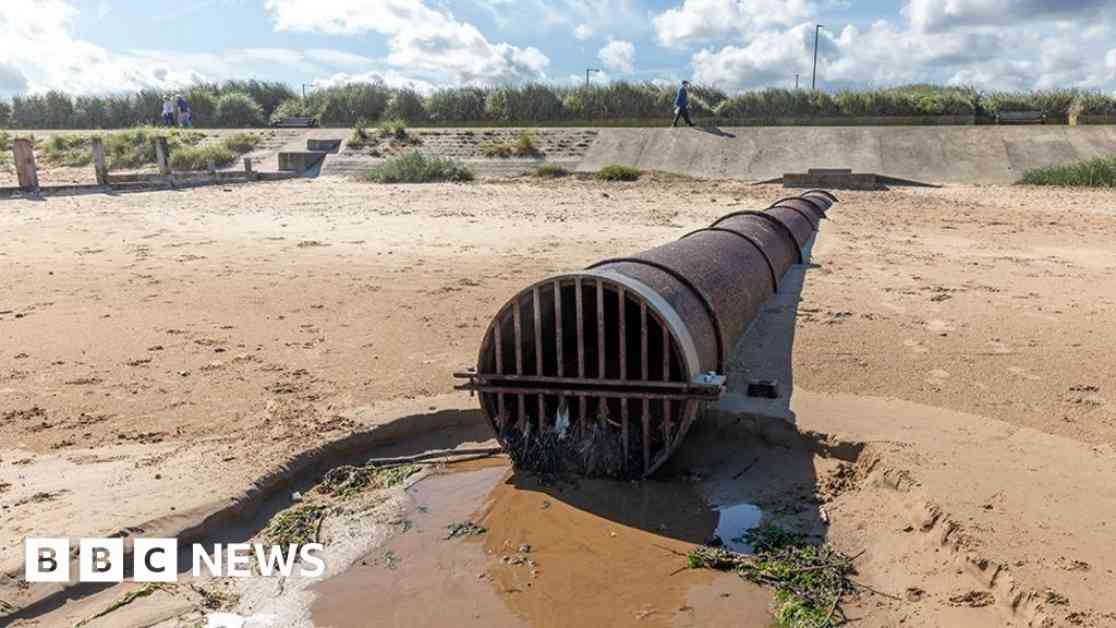Environmental Crisis Uncovered: Over 6,000 Potential Illegal Sewage Spills Revealed by BBC Investigation
A recent in-depth investigation conducted by BBC News has uncovered shocking data indicating that major English water companies may have discharged raw sewage nearly 6,000 times in 2022 when it was not raining, a practice that is potentially illegal. This revelation comes after an analysis of spills data from nine firms, showing that such spills occurred even during the country’s record heatwave.
The water companies defend their actions by stating that they release untreated sewage into rivers and seas during rainy weather to prevent flooding, but they deny the BBC’s findings regarding illegal dry spills. However, the Environment Agency has disagreed with the companies and handed over the data to the BBC for further scrutiny.
The BBC’s investigation revealed that dry spills may have started on more than 200 days in 2022, lasting over 29,000 hours, including during the summer heatwave when people were cooling off in rivers and seas. The contamination of water with human or animal faeces can expose individuals to harmful bacteria and parasites, leading to serious health risks.
The findings of the investigation have raised concerns among experts, with calls for increased transparency and investment in the water network infrastructure. The water companies have committed to publishing real-time sewage maps to the public by 2025 to address the issue of sewage spills.
It is essential for regulatory bodies and water companies to work together to prevent illegal sewage spills and protect public health and the environment from contamination.
Transparency in Water Management: Challenges and Solutions for Tackling Illegal Sewage Discharges
The recent revelations of potential illegal sewage spills by major English water companies have highlighted the challenges in water management and the need for increased transparency in monitoring and reporting practices. The discrepancies between the data provided by the companies and the findings of the BBC’s investigation raise concerns about the accuracy and reliability of information regarding sewage discharges.
The water companies’ refusal to share data with the BBC and their disagreement with the analysis conducted by the Environment Agency underscore the lack of accountability and oversight in the industry. The need for independent monitoring and verification of sewage spills is crucial to ensure compliance with regulations and protect public health and the environment.
Moving forward, it is essential for water companies to work collaboratively with regulatory agencies and the public to address the issues of illegal sewage discharges and improve the overall management of sewage and wastewater. Transparency, accountability, and investment in infrastructure are key to preventing future incidents of contamination and pollution in waterways.
Public Health Risks and Environmental Impacts of Illegal Sewage Spills: The Urgent Need for Regulatory Action
The alarming findings of potential illegal sewage spills by major English water companies have raised serious concerns about public health risks and environmental impacts associated with untreated sewage discharges. The contamination of water with harmful bacteria, parasites, and viruses poses a significant threat to individuals who come into contact with contaminated water sources.
The need for regulatory action to address illegal sewage spills and prevent further pollution of rivers and seas is critical to protecting public health and the environment. The lack of transparency and accountability in the water industry highlights the urgent need for increased oversight and regulation to ensure compliance with environmental laws and regulations.
It is imperative for regulatory agencies, water companies, and policymakers to work together to address the root causes of illegal sewage spills and implement measures to prevent future incidents. By investing in infrastructure, increasing transparency, and enforcing stricter regulations, we can safeguard our water resources and protect the health and well-being of communities across the country.
